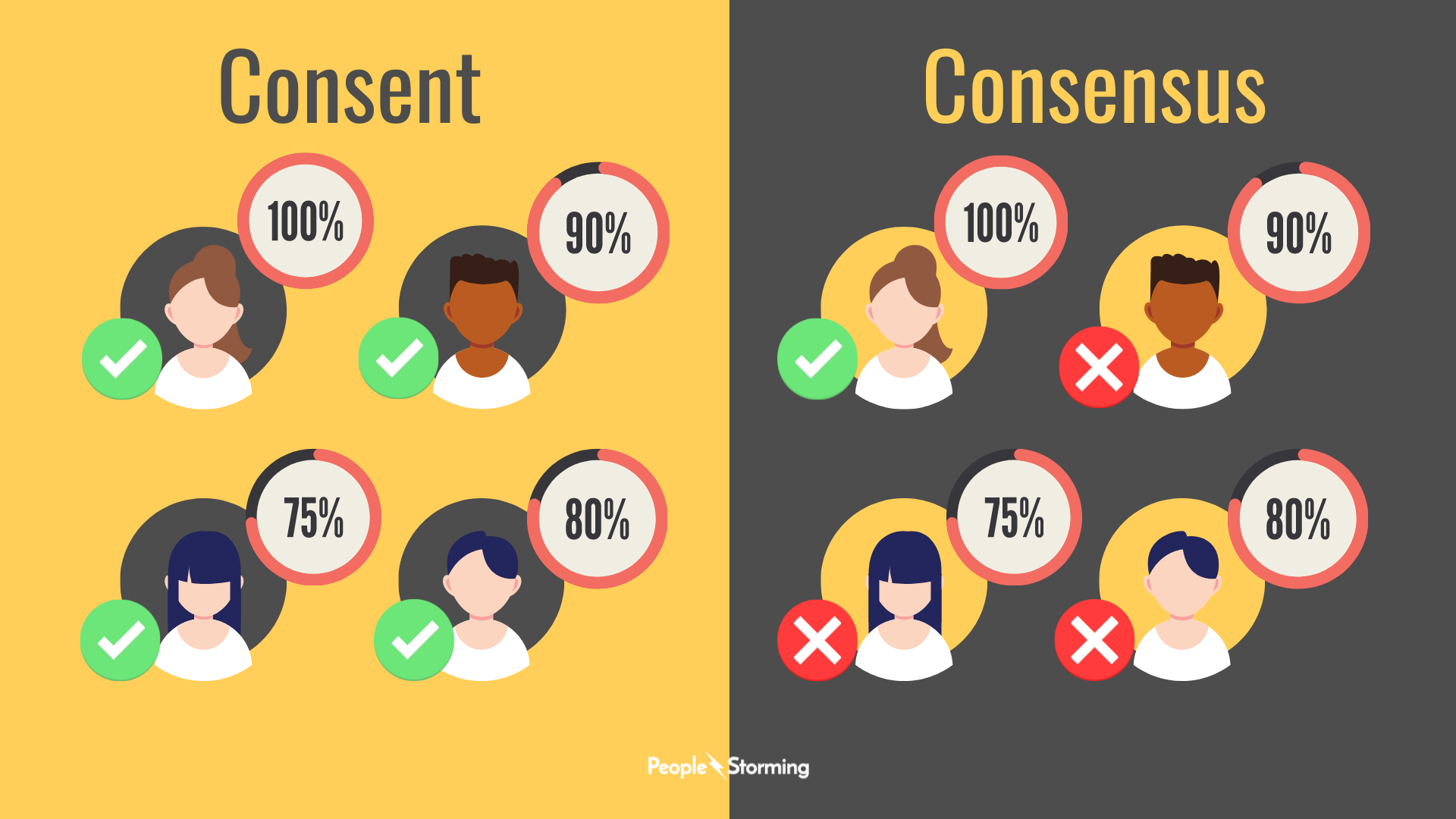Consensus Versus Consent
Don't allow your company to be paralyzed by consensus-based decision-making

It's long been known that effective companies have a track record of making good decisions, quickly. As facilitators, we are often called in to help in situations where decision-making is stuck. Of all the decision-making dynamics we encounter, there is one that is consistently a red flag for us: consensus cultures.
Raise Your Hand If...
Consensus cultures don't proceed with an idea unless everyone involved agrees that it's the right thing to do. This dynamic creates a decision-making trap that goes like this...
- The more important the decision, the higher the stakes
- The higher the stakes, the more we worry about the outcomes
- The more we worry, the more likely we are to be strongly attached to our preferences
- Getting to 100% agreement is now much harder (and often impossible)
- So we're stuck
Tragically, with a consensus culture, the more important it is that we reach a decision, the less likely it is that we'll be able to do so. This trap is potentially catastrophic in a professional setting as it can paralyze a business (or, at least, slow it down so much that it might as well be paralyzed compared to the competition).
Lower Your Hand If...
By contrast, consent-based decision-making asks everyone to default to buying-in and to only speak up if they can't live with a decision. This is a 'stop the train only when you have to' culture that understands the value of making progress - even when people aren't in agreement.
Often, we'll contrast consent and consensus like this...
- Consent means everyone has to align
- Consensus means everyone has to agree
The idea of alignment (though it can sound a bit clichéd) is actually a good visual metaphor here...
I may not agree that this is the best direction to go in but I realize that we can't go anywhere if we're pointed in different directions. So let's align and see where your choice takes us.
Coaching From Consensus To Consent
When we spot a consensus culture, we know that's our cue to ask questions like these...
- Who owns this decision?
- Who's accountable for the outcome?
- If you didn't make a decision, what would happen?
- Whose job is it to make sure all the facts are considered?
- Who's making sure the process is fair and transparent?
- Who's driving this decision to ensure it goes a fast as it can safely go?
This line of questioning often exposes gaps in roles and responsibilities that are the underlying reasons the group has fallen into consensus-based decision-making.
Ask Yourself
Are you seeing poor-quality / slow decision-making at work?
What would happen if you tried out some of the coaching questions above?
If your team or managers could use a level-up in the decision-making department, check out our bitesize Decision Making & Accountability workshop.


